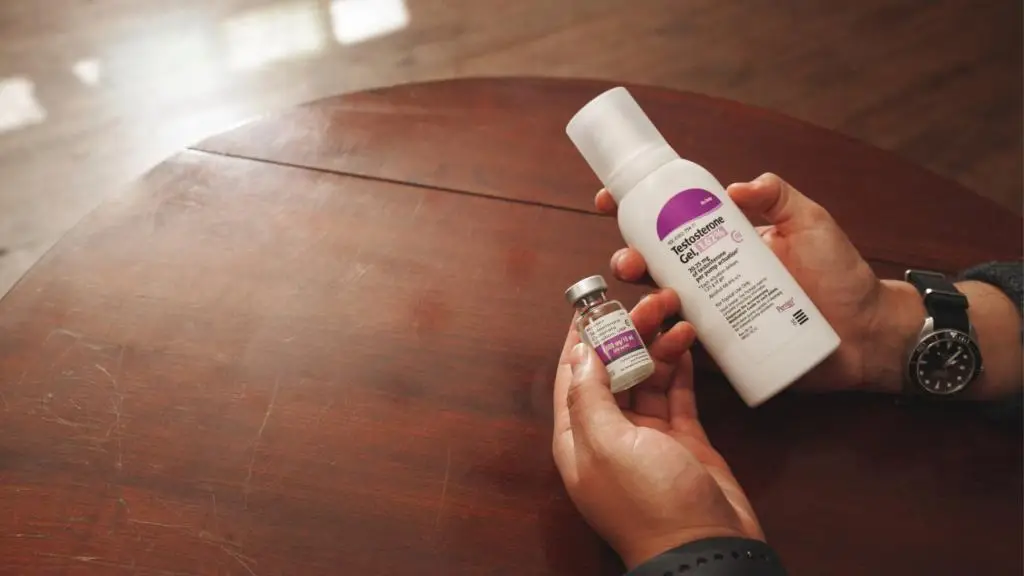This article is written for transgender, nonbinary, and gender non-conforming people who use testosterone as part of their care plan. A common question that many transgender people have about their transition is, how will testosterone affect my emotions? This blog describes the biological and physical reasons that testosterone can alter the way someone experiences certain emotions during their transition. Learning more about the real impact of testosterone on your feelings will help you make the decision that is best for you. If you have more questions, don’t hesitate to reach out to your healthcare provider.
The physical effects of taking testosterone as gender-affirming hormone therapy (GAHT) can be dramatic, depending on the dose. Within one year of beginning T, many people experience noticeable changes to their voice, facial shape, hair texture, skin, and body shape. There is a lot of emphasis on these physical changes. Even the not-so-awesome changes (such as hot flashes, balding, voice instability, and acne) are transition milestones for people on T. Some people document these changes on vlogs or blogs or keep a journal during the early part of their gender journey. The first year of transition is very exciting and there are lots of changes to celebrate.
It’s easy to notice physical changes—they’re right there, in the mirror! However, the emotional side of testosterone is not visible the way a new mustache might be. The mood changes that come with using this masculinizing hormone are noticeable, too. They happen in your brain over time. They can be subtle or dramatic. On the outside, your body is changing to match your desired gender expression. On the inside, your brain is changing as well.
The link between testosterone and masculinity
One of the most common questions people ask before starting testosterone is about mood change. People ask, “will testosterone make me a rage monster?” They may have concerns about “roid rage” or about experiencing uncontrollable mood swings that could feel violent, scary, or overwhelming. If you had a negative male role model in your life, you may have some valid fears about becoming like that person. Being afraid of cisgender men or toxic masculinity might make you nervous about starting testosterone. After all, those guys have high testosterone levels—so you might wonder if testosterone is to blame for their behavior.
Fortunately, there is no basis for those fears. They are based on stereotypes that link masculinity with unchecked aggression. Your experiences with cisgender men are valid, and we do live in a culture that co-signs a lot of negative or harmful behavior, especially when it is perpetrated by cisgender men. However, that is a cultural problem—not a hormonal issue.
While many of us have complex feelings and opinions about masculinity (and by extension, testosterone), T is not linked with rage or dangerous behavior. Some people report a new sense of emotional detachment after starting testosterone, but medical studies on this phenomenon focus on cisgender women, not transgender men, transmasculine people, or nonbinary people who are using GAHT. Research shows that testosterone actually has a positive effect on moods for people who use T as gender-affirming hormone therapy. Instead of anger, you may be surprised at how joyful you feel on T.
How can testosterone change my emotions?
All hormone therapy—including gender-affirming hormone therapy—influences different body systems. Some studies suggest that testosterone changes emotions by influencing a part of the brain called the mesolimbic pathway. This is the part of the brain linked with the feel-good neurotransmitter dopamine. Higher levels of dopamine and a stimulated mesolimbic pathway are linked with feelings of being rewarded. As your dopamine levels increase, the sky might seem a little bluer and the faces of other people just a little more beautiful.
Using testosterone as a gender-affirming medication can create emotional side effects such as:
- Gender euphoria
- Decreased depression and anxiety
- Increased sex drive
- Better self esteem
- Irritability
- Changes in mental health
Within a year of beginning T, you will likely feel a new sense of confidence. As your body comes into alignment with your identity, you might feel more comfortable saying “take me as I am” instead of “am I good enough for you.” However, there are some challenges that can crop up as well. While most people taking testosterone report an improvement in their moods, others notice that it can have a less-than-rosy effect.
For trans people on testosterone, it is not uncommon to feel an increased sense of irritability or quickness to react. This may manifest as snapping at a friend or feeling like you have less impulse control in the moment. This type of feeling can improve over time, so be patient with yourself. If you have an existing mental health diagnosis, keep in mind that T does have the ability to destabilize you. Instead of blaming yourself or discontinuing your gender-affirming medication, work with your provider to discuss your options.
If you are coping with depression, anxiety, or other mental health issues, reach out to your medical provider to get support. Some people notice that their depression worsens on T. (This can feel confusing, especially if you’re excited to take testosterone or have wanted to transition for a long time.) Since everyone’s body is different, it is not possible to predict how T will affect your mental health. Most commonly, T improves mood because people are living as their authentic selves. Remember that you are a whole person and your care plan should take your other needs into account—not just your gender journey.
Will I be able to cry when I take testosterone?
Adjusting to any new medication means getting used to the feeling of being on hormones. Everyone has a different response to testosterone. It is unlikely that you will have dramatic or overwhelming feelings. Anecdotally, people who take T report that they experience a flattening or dampening of some of their emotional responses, such as an inability to cry.
The science of crying is complex. We don’t have a clear relationship between T and tear production, although some research suggests there is a link. One hypothesis suggests that our bodies release certain types of hormones through crying to reduce cortisol levels, helping your body to literally shed stress. Another hormone called prolactin may stimulate crying, according to studies on the chemical composition of cisgender people’s tears.
While you may notice changes to how often you cry, you may feel your feelings more strongly. They simply aren’t expressed with tears. You may feel more comfortable expressing them because you are living authentically. Instead of hiding from emotions, you allow yourself to experience them. This is part of getting to know yourself and it is a powerful aspect of gender transition.
Testosterone will not change who you are. You may discover new aspects of your personality or learn how you want to live in the world as you transition. Bear in mind that some of these feelings might feel new. As you navigate your emotions and learn to make decisions with those feelings, you may encounter some surprises. For example, you might realize that you can feel very frustrated without acting on it. On the other hand, you may discover that the same emotion inspires you to stand up for yourself for the first time and be more assertive than before. You might find it harder to cry. These are normal changes for many people. They are a hormonal side effect—not a sign that you are an uncaring or cold person.
To help ease your transition onto testosterone, Plume’s trans-led care team will ensure your dosage is correct for your body size and transition goals. Our support groups can offer some guideposts and care as well. You deserve to feel strong and supported as you take on this phase of your gender journey. Shifting emotions are part of every transition. It’s nothing to be ashamed of—it’s simply part of your path as you grow toward the person you want to be.



